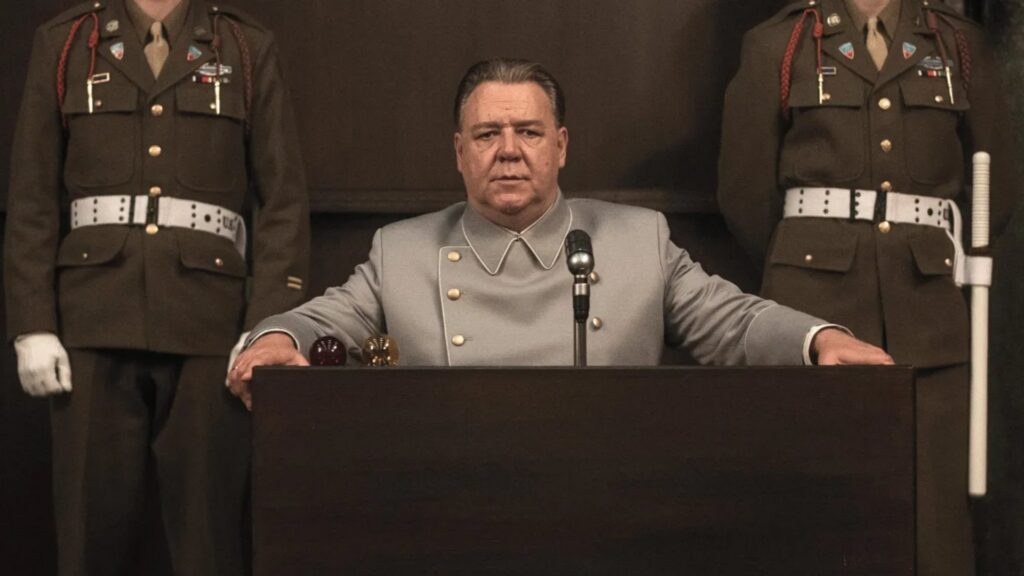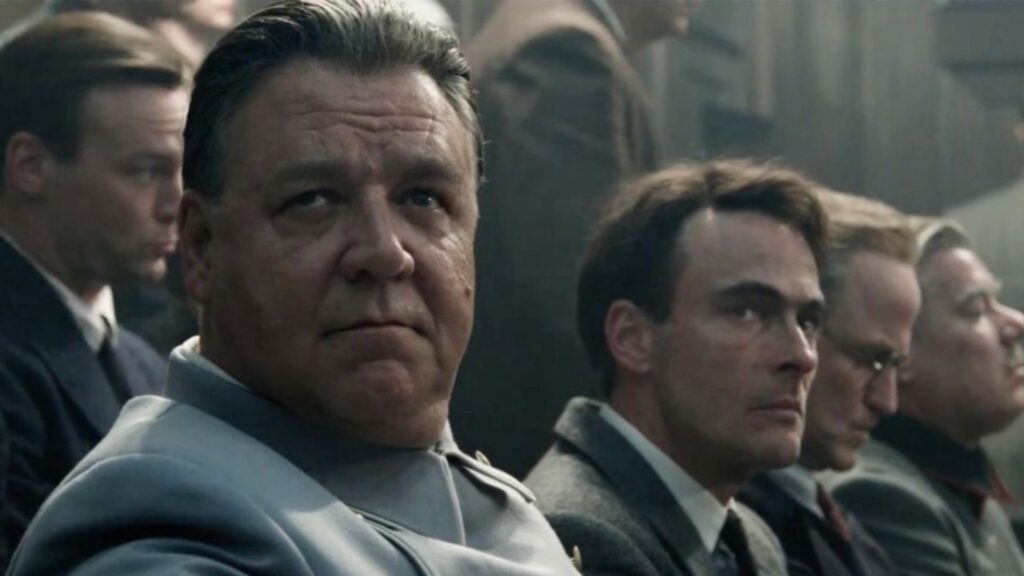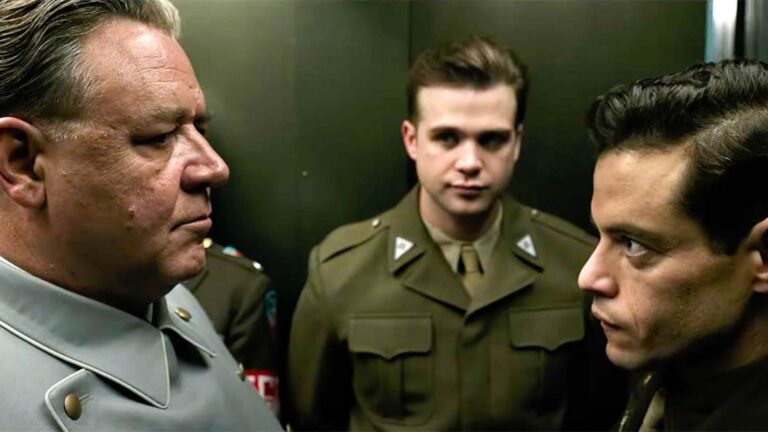James Vanderbilt’s ‘Nuremberg’ brings its own load of history and the pressing needs of the present, and its screening at the Toronto International Film Festival showed exactly why it has been one of the most eagerly anticipated releases of the year thus far. The four-minute standing ovation may not be all that long by Venice Festival standards, but it certainly is at the TIFF, which is a festival where standing ovations are hard-earned.
primer vistas, Nuremberg appears to be just another historical courtroom thriller. Let’s face it, after all, Stanley Kramer’s ‘Judgment at Nuremberg’ (1961) remains an iconic film in this respect to this very day. However, the Vanderbilt version is based on Jack El-Hai’s ‘The Nazi’ and the ‘Psychiatrist,’ which does not tread the same path as the older film. Rather, it draws the viewer into the mental battles that led to the establishment of the world’s first international tribunal. Through the partnership of Nazi Reichsmarschall Hermann Göring (Russell Crowe) and U.S. Army psychiatrist Lt. Col. Douglas Kelley (Rami Malek), the movie shifts the courtroom thriller genre into a chilling reflection on justice, charisma, and how evil can so easily cloak itself with charm.
Russell Crowe and Rami Malek’s Deadly Chess Game

Russell Crowe gives his most authoritative performance in years as Göring. Falling into German dialogue with disturbing accuracy, Crowe conveys the confidence and also the terrible denial of Hitler’s second-in-command. The performance does not reduce evil to cartoon villainy as it reveals its complexities, confronting us with the chilling recognition that cruelty will often cloak itself behind words and sophistication.
Malek synthesized the character for Kelley, playing him note for note. His performance as a man obsessed with getting inside Göring’s head but struggling to reconcile his professionalism with his disgust provides the audience with their emotional buy-in. The scenes between them are a mix of sparring, psychological combat, and coded respect that register much more as a deadly game of ideologies than anything that feels remotely like dialogue. Malek himself has said of Kelley that he is a classic case of an obsessive, and that tension between duty and fascination is what keeps the heart of the film electrified.
But amidst these heavy-hitting performances, it is Leo Woodall who proves to be the hidden gem of the film. As Sgt. Howie Treist, the German-Jewish émigré who also happens to be the translator, he has a quietly potent hand that leads to one of the film’s most effective scenes: his late monologue where he remembers the loss of loved ones at the hands of the regime on trial.
A Timely Awards Contender With Lasting Relevance

Eighty years on since the Nuremberg trials, the documentary comes at a point in time when the specter of authoritarian regimes is gaining momentum once again, and the memories of the past seem to be taking a backseat. But Vanderbilt refuses to let that happen. Perhaps one of the most astonishing decisions he makes in this documentary is to bring the proceedings to a complete standstill to display graphic documentation of the atrocities committed at concentration camps. It’s a moment that is silent in the theater but speaks volumes.
As critic Pete Hammond said, “The likenesses to today are chilling.” Democracies are grappling with frailness, propaganda is spreading at an unprecedented rate, and the ability of justice to hold power accountable has yet to be answered. It’s through this lens that Nuremberg becomes more than just a historical piece, it’s a reflection of what is happening in today’s world.
The craft of the film also adds to the emotional impact. The cinematographic work of Dariusz Wolski conveys the sense of both claustrophobia and grandeur in the chambers of the tribunal, while the production design achieves the full effect of being in 1945. Vanderbilt’s script eschews the traditional three-act format to concentrate on the relationship between Kelley and Göring.
And the acting performances do not operate in a vacuum. Michael Shannon brings weight with his portrayal of Chief U.S. Prosecutor Robert H. Jackson, while Richard E. Grant provides historical context to the story from the British side of things. John Slattery rounds out the cast as prison commandant Burton Andrus. It now falls to Sony Pictures Classics to take Nuremberg into the awards fray, and the film has all the elements because it represents a tremendous comeback role for Crowe that includes a strong cast, excellent craft, and themes that are all too painfully relevant in the current world. In an awards season that has already seen the historical scope of ‘Oppenheimer’ and the courtroom drama of ‘The Trial of the Chicago 7,’ Nuremberg could very well be a dark horse in the Best Picture category. But more than that, its true worth is in reigniting the dialogue on justice and its fragility, its fallibility, and its absolute necessity. As the movie makes us remember, the Nuremberg trial was no certainty. It was a long shot that required vision, courage, and compromise. The very fact that it happened is a wonder.




